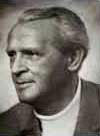Impressionen
Mein Jahr in Mannheim war mehr als ein Studium, es war eine Lebenserfahrung.
Rebeccah Dawson (Carrboro)
Hirokazu Fujino
I like Mannheim because it is well designed like old and traditional city “Kyoto” in Japan, my mother country. Mannheim is providing students with ideal environment for study: Different tastes of libraries, beautifulroads along the river for the refreshment, cafeteria with an air of openness and especially there are a lot of good people who came from all over the world. Thought I quite appreciate the University of Mannheim and its surroundings of study, the beginning of the semester was not so pleasing as I expected. It took me almost 10 days to get a room. Getting an accommodation here I have to insist that something should be done in order to improve lack of residence.
The courses in Mannheim University focuses more on individual work in my opinion. In this semester I took 4 elective courses: Logistics management, Lean production management, Service marketing and Price and product management. There were students ranging from 40 to 100 and they listened to the lectures and sometimes asked questions to a professor. Only in Service marketing course I made presentation with my fellows. From the point of view that I have ever been in Sweden for exchange program, I would appreciate it if there are chances of outputs what I have learnt such as presentation and working as a team. There were 3 other members in a team of Service marketing. They were from China and Sweden. We discussed the case of Southwest Airline. The discussion was quite interesting because each country has different infrastructure and thus we have several suggestions. It took us so long to reach a conclusion, but I have enjoyed myself. Other courses were also meaningful to me. When I studied bachelor at university in Japan, my specialty was administrative strategy and searched how a company could take action to increase its profit and sale based on theory. I have decided to study operations and marketing field because I believe those factors were profit drivers. In contrast to the methods in Japan, lectures were mathematically focused. It was vague how I could put the theory into practice in bachelor, but what I learn in master was more practical. Moreover exercise courses were quite helpful for me to review the lecture. In exercise sessions I could solve all the questions over the lecture. In addition, they took place in the same week with the lecture, therefore the contents could be easily stored on my brain. I have just one problem with previewing and reviewing. Since some parts of literatures are written in German, I could read them with my German level.
Examinations were new to me, this is because the system was different from the ones in Sweden. Usually exams last 3 to 6 hours so that professors check how much students really grasp the subject. Students need to write around 10 pages on average. On the other hand, exams at this university were rather short. They required me to write answers so quickly and once I spent just a second on considering the question, the time was up. I had still difficulties in English, so I thought I should train myself to have a good command of the language in writing. So far my grade was not satisfying, but I am sure that I will work harder. Germany and Japan have the similar history, lost the world war II and developed as a industrial country. However I can find differences such as cultures, characters of people, the perspectives on energy, the way of shopping, hence there are a lot to be worth studying. At the moment I have been doing a research on the waste of food personally.
In brief, I was fully satisfied with the university. Staffs in international office gave me supports other than study and Studium Generale offers me languages courses. I can make use of Abendakademy for improving my German. I'm sure the experiences at this university will be beneficial in the future.
Hirokazu Fujino

 „Die Stiftung soll im Dienst der Völkerverständigung und des Weltfriedens für eine Gemeinschaft von Studenten verschiedener Nationalitäten Heimstätten errichten und unterhalten.“
„Die Stiftung soll im Dienst der Völkerverständigung und des Weltfriedens für eine Gemeinschaft von Studenten verschiedener Nationalitäten Heimstätten errichten und unterhalten.“